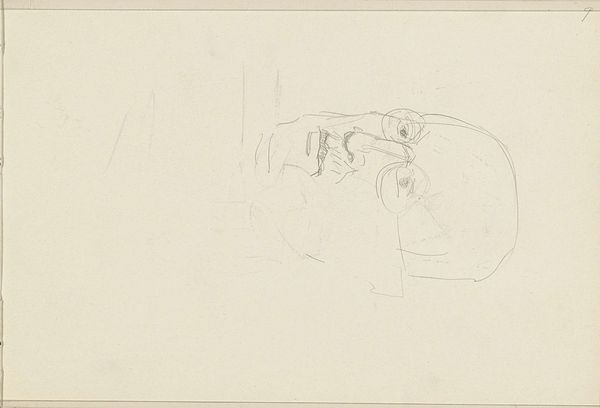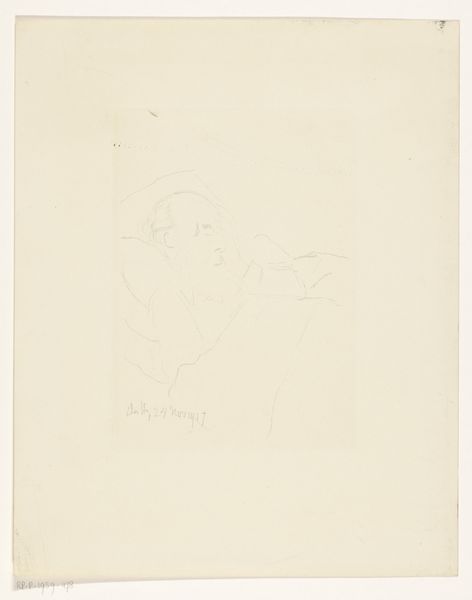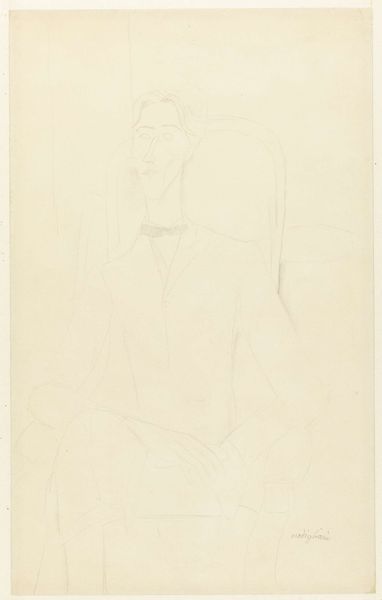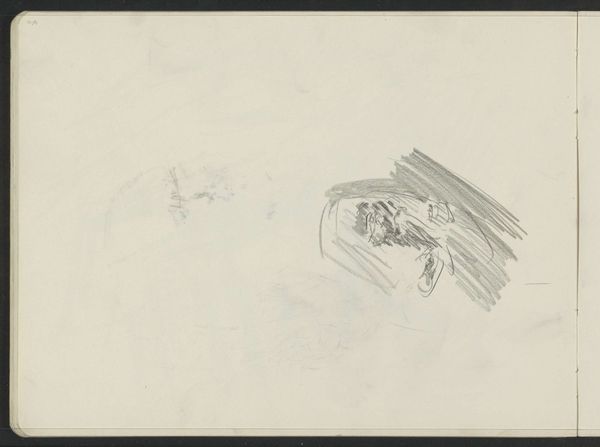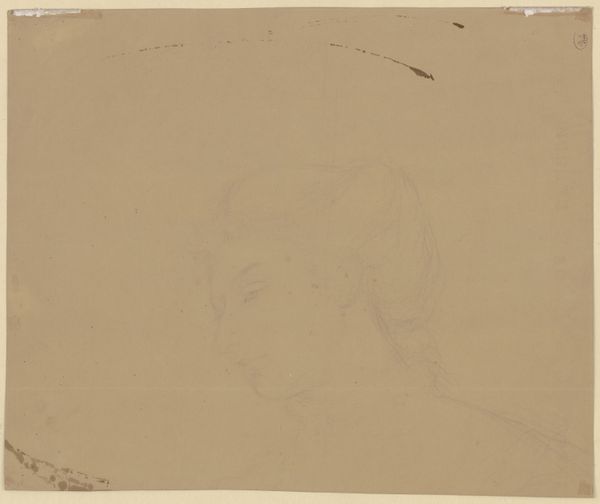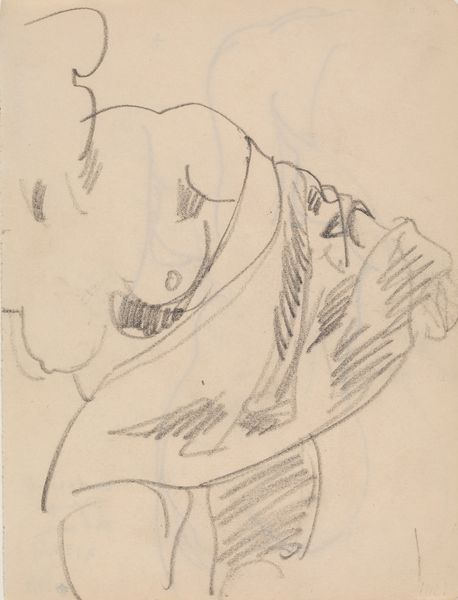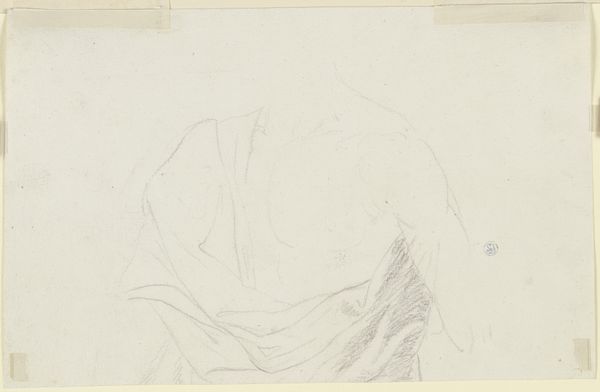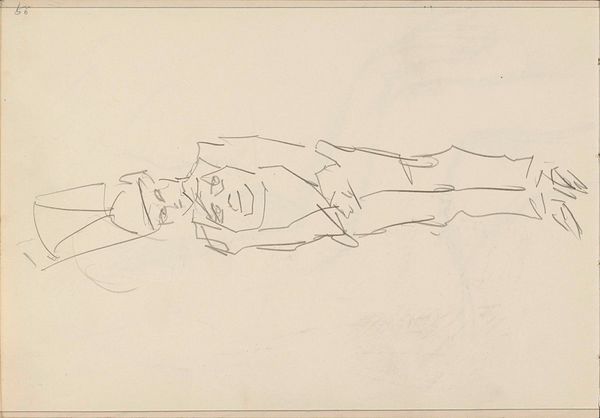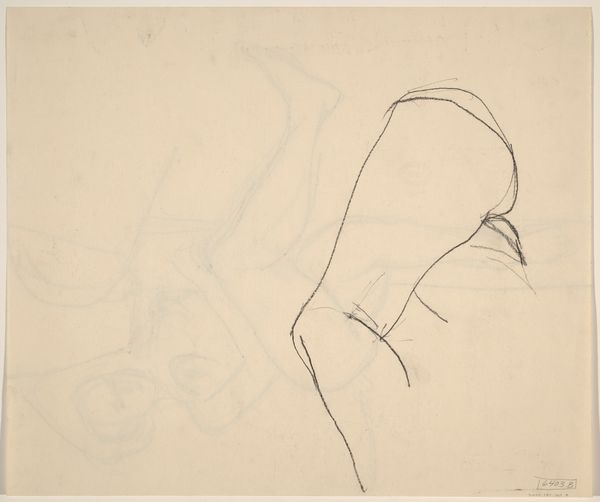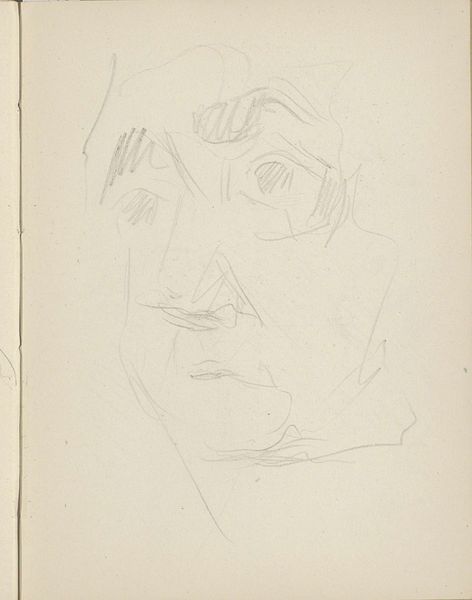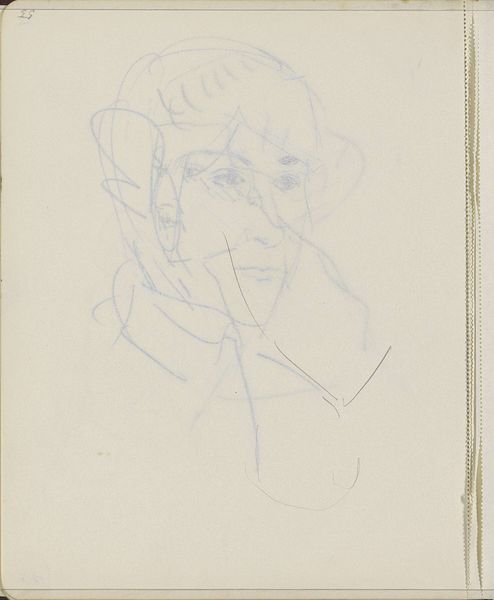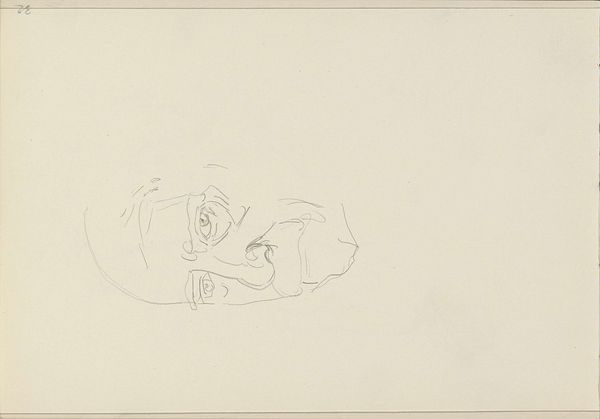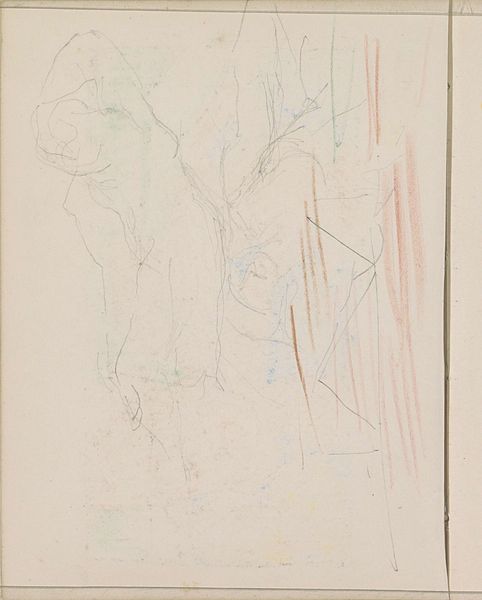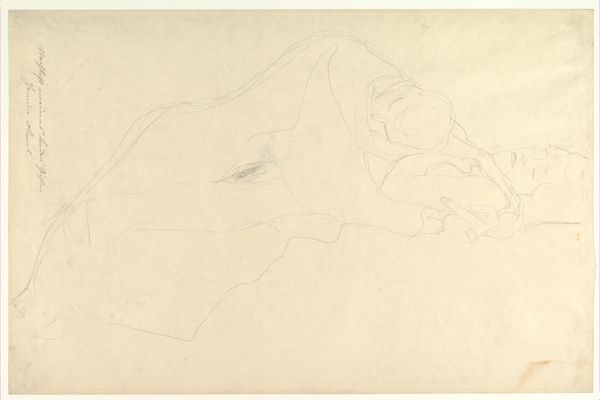
drawing, paper, pencil
#
portrait
#
drawing
#
paper
#
geometric
#
pencil
#
expressionism
Copyright: Public Domain
Curator: This work is simply titled "Portrait" by Max Beckmann, a pencil drawing on paper currently residing here at the Städel Museum. Editor: Well, my immediate reaction is a sense of… unease? There's something unsettling in the angularity of the features and that rather confrontational, almost manic gaze. The starkness of the lines amplifies this feeling. Curator: I agree. Considering Expressionism's engagement with intense emotions, let's think about the material and the social context in which it was produced. Pencil on paper suggests immediacy, a directness in capturing the raw feeling. It could be argued that the cheapness of the medium speaks to his precarious existence during and after the First World War. Editor: Possibly, but I’m struck by how those simple, spare lines articulate such complex emotion. Note how Beckmann uses these almost geometric forms to suggest not just facial structure but also psychological states. That prominent nose, those large glasses... They contribute to this idea of the portrait as something more than mere representation. It seems more like the dissection of a subject's soul, or maybe, a moment in time of existential despair. Curator: Right. Expressionists like Beckmann engaged actively with the world around them and its effects. His choice to emphasize linear precision and the subject's psychological rawness becomes more vivid. Editor: Indeed, because within this composition lies not just representation, but rather an invitation to engage with profound human states. I would consider the paper itself – its texture, its very material presence - and the delicate balance that sustains its ghostly lines, almost hovering, creating a strong contrast and palpable energy. Curator: Looking at how the figure is framed, how their very expression might relate to broader shifts in material culture... That can offer a useful counterpoint, even though this might only be a pencil sketch on paper, we should also recognize that Expressionist drawing in post-war Germany took on powerful social weight. Editor: Fair point. On closer viewing, I also think the roughness of the drawing enhances the overall expressive impact, almost stripping away any artifice to reveal something fundamental. Curator: Ultimately, the interplay between those angular features and this very fragile paper and graphite asks questions about the relationship between a world seemingly losing shape. Editor: I’ll simply carry that disquiet with me – a testament to how deceptively basic means can provoke a complex visual experience.
Comments
No comments
Be the first to comment and join the conversation on the ultimate creative platform.
